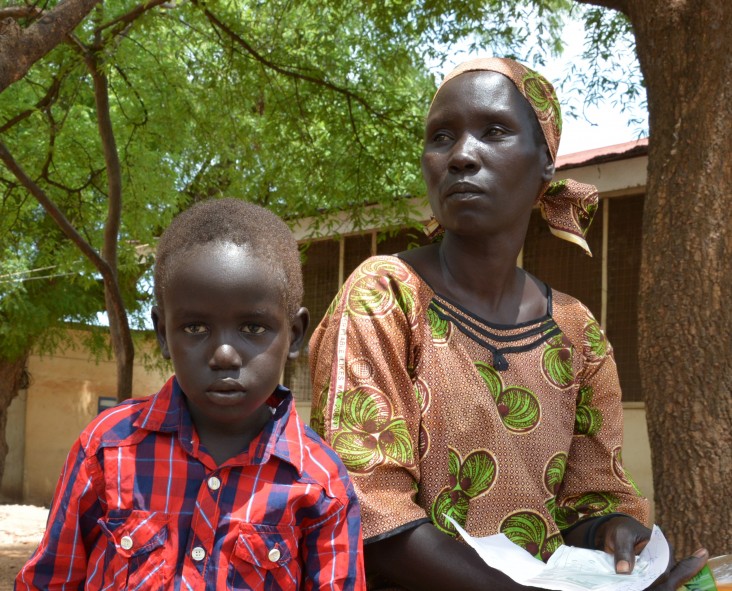
April 2016—Six-year-old Yohana Peter clutches a bottle of mango juice as he waits for his medication outside a pharmacy at Al Sabah Children’s Hospital in Juba, South Sudan. Seated next to his mother on a metal bench, Yohana looks anxious.
“He had fever and stomach pain,” says his mother, Asunta Wasuk. “I gave him some medicines at home but his condition continued to worsen, so I brought him to the hospital to be seen by a doctor.”
Malaria remains endemic in South Sudan, accounting for about 40 percent of outpatient consultations, 30 percent of inpatient admissions and 20 percent of deaths in health facilities. Al Sabah Children’s Hospital Executive Director Dr. Felix Nyungura says that most of the 150 to 200 patients seen daily at the hospital have malaria.
“Malaria is a serious problem,” says Nyungura. “The majority of those occupying beds in the hospital are malaria patients.”
Yohana’s family lives in Gondokoro village in Juba County, where access to basic services such as medical care and education is limited. The nearest clinic is across the Nile River in Juba town.
“Our home is far away from the clinic,” Wasuk explained. “I have to keep some medicines at home in order to treat my children when they get sick at night.”
Although the village is only 8 kilometers from the capital, it would take an hour to reach the hospital on foot. On this overcast day at the beginning of the rainy season, Yohana and his mother took a minibus to the hospital.
The doctor confirmed that Yohana had malaria and prescribed a three-day dose of artemisinin-based combination therapy (ACT), the first-line treatment for uncomplicated malaria in South Sudan. Luckily, most cases of malaria are easily treatable when diagnosed early.
Wasuk is glad she found free malaria treatment for her son at Al Sabah, a public hospital USAID supplies with basic medicines as part of its support for basic health services.
In response to the 2015 malaria upsurge in South Sudan, USAID, through its Systems for Improved Access to Pharmaceuticals and Services and DELIVER projects, supplied more than 635,000 doses of ACT to Western and Central Equatoria states, where USAID has been providing basic health services for several years. These ACTs will help save the lives of the most vulnerable groups—children and pregnant women.
Through the President’s Malaria Initiative, USAID supports South Sudan’s National Malaria Control Program with pharmaceutical technical assistance, ensuring that ACTs and other malaria commodities such as insecticide-treated nets, sulfadoxine and pyrimethamine to prevent malaria in pregnant women, and rapid diagnostic tests are available to combat malaria among pregnant mothers and children under age 5.
Through USAID's support for primary health services in Central and Western Equatoria states, 155,000 children under age 5 were treated for malaria and nearly 40,000 pregnant women received medicine to prevent malaria in fiscal year 2015.
LINKS
Follow @USAIDSouthSudan, on Facebook, on Flickr







Comment
Make a general inquiry or suggest an improvement.